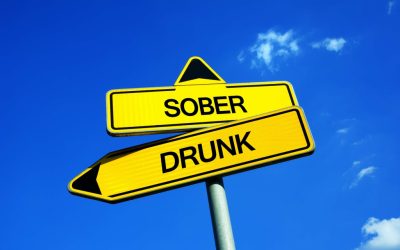Contents
Areas that have after-school activities tend to have less of a problem with drug addiction. Similarly, if people have access to exercise in their community, they’re less likely to engage in drug-related activities. It’s never too early to explain the effects of drugs and alcohol.
Detoxification is the initial stage of addiction treatment, after an evaluation. Detoxification involves ridding the body of toxic substances that have built up over time in the body. The withdrawal symptoms can be quite uncomfortable, even potentially lethal without the guidance of trained medical staff.

Scientists will be able to translate this knowledge into new treatments directed at specific targets in the brain or to treatment approaches—called pharmacogenomics. This emerging science promises to harness the power of genomic information to improve treatments for addiction by tailoring the treatment to the person’s specific genetic makeup. By knowing a person’s genomic information, health care providers will be better equipped to match patients with the most suitable treatments and medication dosages, and to avoid or minimize adverse reactions. Clinicians often find substantial variability in how individual patients respond to treatment. Genes influence the numbers and types of receptors in peoples’ brains, how quickly their bodies metabolize drugs, and how well they respond to different medications. Learning more about the genetic, epigenetic, and neurobiological bases of addiction will eventually advance the science of addiction.
The desire to “fit in” can lead to increased use and eventual addiction. Americanaddictioncenters.org https://en.forexpulse.info/ needs to review the security of your connection before proceeding.
Researchers continue to learn about how your genes and environment interact to affect your risk of addiction. Through this research, they can help lessen the stigma of addiction, treat drug addiction faster, and create individual prevention and treatment plans for people with addictions. But as a person grew into young and middle adulthood, the use of certain drugs was tied more to genetics and less to family and social influences.
Behavioral therapies are a key component of addiction treatment. Behavioral therapies help patients learn how to challenge their compulsive behaviors in favor of healthier ones. There are many different behavioral therapies, but all share the gateway drugs that lead to addiction common goal of helping patients to change their thoughts and behaviors. This is because addiction is a complex disease that is influenced by many different factors, including environmental and social factors that add to potential risks.
What Are Addiction Genes?
Some people have brains primed toward greater impulsivity than others, and this can put them at risk for numerous forms of addiction. Other genes are specific to the individual substances (e.g., just influence alcohol problems). Regardless of whether or not there is a specific gene that can be classified as responsible for addiction, studies have shown that genetics do play a role in addiction.
Holistic addiction treatment can be beneficial to those who seek alternative treatment options for their recovery. Holistic addiction treatment plans tend to include elements of both conventional and alternative medicine; holistic addiction treatment many focus on the mind, body, and spirit. Outpatient treatment is the most commonly used type of addiction treatment. Outpatient treatment involves meeting with a therapist or counselor regularly, usually once or twice a week. This type of treatment is recommended for those who have mild addiction issues, as outpatient treatment is generally less intensive than inpatient treatment. Experts believe that someday, they may be able to use a dopamine receptor, called D2, to tell if someone will become addicted to heroin, cocaine, or alcohol.
High levels of dopamine can fuel poor impulse control and tilt someone toward addictive behaviors. Scientists are using gene studies to develop targeted medications that can be customized to each patient. Call now to talk with a treatment specialist about your recovery options.
Substance Abuse and Addiction Health Center
Knowing who’s at risk for addiction would allow for more precisely targeted prevention strategies. Everyone knows what addiction is, but it understanding comorbid insomnia and alcohol use can be hard to tell where this disease comes from. Keep reading to learn whether or not addiction can be passed along in the family tree.
- Clinicians often find substantial variability in how individual patients respond to treatment.
- Experts believe that someday, they may be able to use a dopamine receptor, called D2, to tell if someone will become addicted to heroin, cocaine, or alcohol.
- The good news is that scientists are actively pursuing many more paths to treatment and prevention of these complex illnesses.
The elevated risk is tied to increased levels of trauma and stress, with substance abuse used as a coping mechanism for discrimination and violence. Clearly, your family tree isn’t the sole indicator of addiction risk. The world around you also can play a significant role in opening a door that leads to problematic substance use, notes Dr. Anand. Epigenetics is the study of functional, and sometimes inherited, changes in the regulation of gene activity and expression that are not dependent on gene sequence. For those who have fallen victim to addiction, there may also be hope.
Addiction research and genetics
And despite that adversity, will they continue to show a preference for cocaine? Some people become very easily addicted while others can be social drinkers or users and never become addicted, so we know there’s a genetic component,” said Anholt, Provost’s Distinguished Professor of Genetics and Biochemistry. When stress hormones interact with your reward system, you’re more likely to develop an addiction.

If you or a loved one are struggling with addiction, contact us today. CBT helps patients to identify and challenge the beliefs and thoughts that contribute to their addictive behaviors. In particular, CBT helps patients to develop coping skills that can be used when they feel urges to use drugs. If you or someone you love is struggling with drug addiction, it is important to seek professional help as soon as possible. There are many treatment options available that can help people overcome their addictions and live healthy, sober lives. There is no one-size-fits-all approach to addiction treatment.
New pediatric guidelines on obesity in children and teens
Genes are functional units of DNA that make up the human genome. They provide the information that directs a body’s basic cellular activities. Research on the human genome has shown that, on average, the DNA sequences of any two people are 99.9 percent the same. However, that 0.1 percent variation is profoundly important—it accounts for three million differences in the nearly three billion base pairs of DNA sequence! These differences contribute to visible variations, like height and hair color, and invisible traits, such as increased risk for or protection from certain diseases such as heart attack, stroke, diabetes, and addiction. The results of Dickson’s research are likely to reveal new therapeutic or preventative treatments for drug addiction and uncover a means of identifying people susceptible to addiction.
Epigenetics and Drug Addiction
KidsHealth provides a guideline for age-appropriate discussions to help replace misconceptions with proper information. Each new addiction-related gene discovered is a potential “drug target.” Researchers can focus on the gene product and develop a drug to modify its activity. The goal is to correct signals or pathways and restore proper brain function. In rats, missing the mGluR2 receptor adds both risk and protection. If they have to work to get the drug, they tend not to bother. But if cocaine is easily available, they consume a lot of it to feel the effects.
We are currently working on how to combine genetic and environmental information to help people understand their level of risk. Furthermore, there are some debates about whether or not there is an addictive gene present in the human body and how it functions within our brain and nervous system. Nonetheless, research has shown that genetics does contribute to the risk of developing an addiction. While finding the precise genetic cause is tricky, multiple lines of research do show that genes influence substance use. From careful studies, scientists estimate a person’s genetics account for percent of their risk. That’s because there is an inherited component, meaning it can pass from parent to child by way of genes.

Commentaires récents